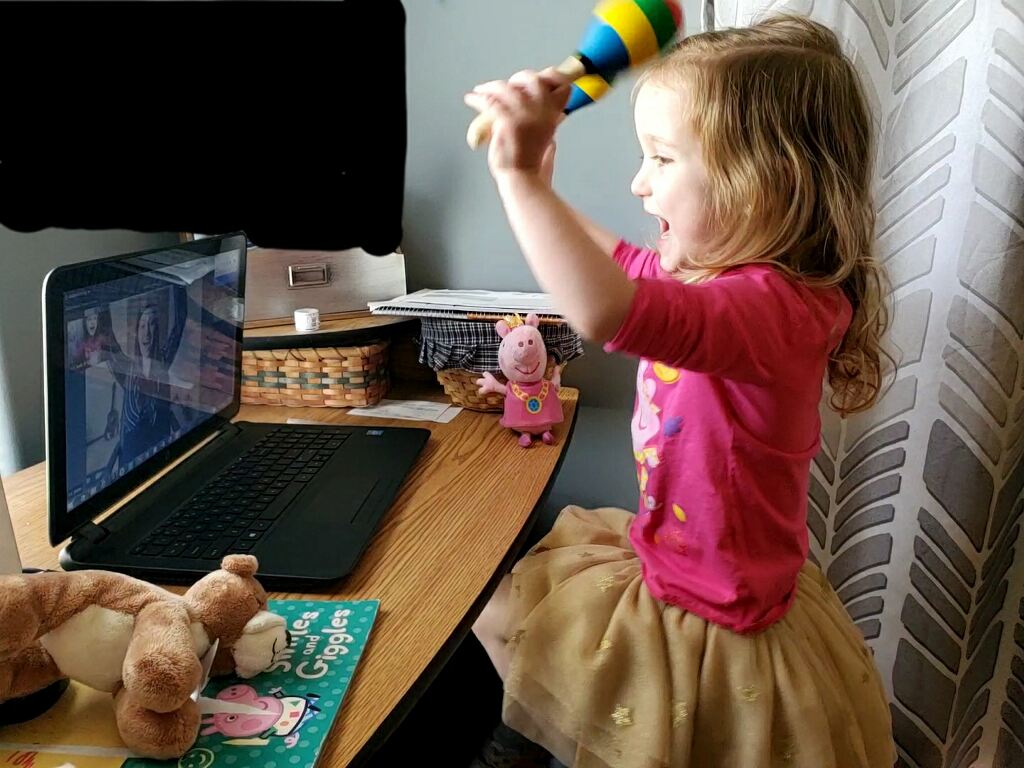
With the spread of COVID-19, BCFR support coordinators continue to offer services that benefit the lives of individuals with disabilities who rely on day-to-day supports. While all in-person sessions are suspended, staff made the transition to providing more services remotely by phone or video conferencing platform such as Zoom, Skype and Facetime.
Offering virtual support for Nutrition Services, Social Skills, Occupational Therapy, Physical Therapy, Speech Therapy, Vocational Transition Services, Positive Behavior Supports and Behavior Intervention Services allows individuals we serve to remain in their home avoiding exposure to others while gaining much needed supports.
The pandemic has affected the individuals we serve in numerous ways and BCFR Support Coordinators continue to stay connected while maintaining social distancing guidelines. Support Coordinator Tory knows that life does not stop, but is just beginning for many individuals she supports, like Owen. Owen is a senior at Rock Bridge participating in the Seamless Transition through Enhanced Partnership Program (STEP) through Boone Hospital. He had just started the process of working with Vocational Rehabilitation and Alternative Community Training to explore community employment when the schools closed and COVID-19 hit the hospitals. Although his STEP internship was cut short, Owen had just interviewed and obtained a job at Texas Roadhouse. Tory continued to stay in touch over the phone and ensure he was staying on track for employment.
Tory said, “His orientation was cancelled and he was disappointed that he couldn’t begin work right away. He was finally able to begin work on April 30. His first day as a bus boy went so well that he’ll also be trained to be a host there and will be doing both jobs throughout his work days.”
Texas Roadhouse has implemented social distancing measures to protect the safety of employees and guests, and Owen is positive about his future there.
Utilizing video conferencing apps has been successful for continued support and is a great way to feel connected and keep individuals from feeling isolated.
“I had a plan meeting with Lucy. Her sister/guardian lives in Springfield. Lucy typically goes to see her every few weeks for a weekend and hasn’t been able to see her for several weeks now,” said Support Coordinator Tina. “Seeing Lucy’s face light up when she saw her sister on Zoom was a great feeling. Lucy kept waving to her sister as her team was talking at her plan meeting. It was really special.”
Tina has used Zoom for 27 out of the 30 ISL monthly client visits in April.
“It has been a great way for me personally to not feel so isolated from my clients and several of them think it is cool to use the computer or their staff’s phone to see me as well,” said Tina.
Not only is meeting virtually more personal, it can be necessary to providing essential support.
Before the pandemic hit, Support Coordinator Tory met with two sisters who are hard of hearing for annual support plan meetings. One sister has a cochlear implant and the other wears hearing aids. Both had expressed interest in looking for new jobs and were preparing to work with Vocational Rehabilitation. After the stay at home order took effect, meeting with a Vocational Counselor face-to-face was not an option. Tory discussed Zoom as an option for meeting virtually and both sisters agreed to give it a try.
“Neither sister can hear well over the phone, so a phone conference was out of the question,” said Tory. “We were struggling to communicate so I ended up calling their mom and talking to everyone together. We got it scheduled and the Vocational Counselor, who is deaf, invited an ASL translator to help. The sisters both got Zoom on their smart phones and the Vocational Counselor, translator, and I were on our computers. It was challenging at times … but I felt pretty proud that we were able to make it work even with all of the difficulties.”
Are virtual meetings the new normal? Hopefully not. But they are a valuable tool to keep people connected and even the unexpected providers, like horseback riding and music therapy, have been able to make the transition — allowing a continuation of services through these tough times.
“I can not express the level of our gratitude for BCFR and your willingness to continue the amazing services that you provide during this time. The kids need it, our staff need it,” said Chris at Central Missouri Therapy SPOT.
Although staff and providers are grateful for services like Zoom, they will be even more grateful to once again meet in person.
“For now. I think they’re good enough, but definitely not the same as meeting face-to-face. I’ll be happy when all of this is over and things can go back to normal,” said Tory.